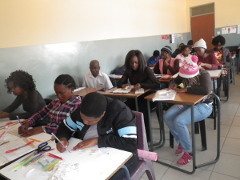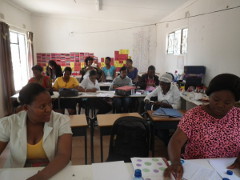
|
News
Sunday 9 November 2025 In an alarming show of power, safari tourism lobbyists are blackmailing Vice President and Minister of Finance, Ndaba Gaolathe and Tourism Minister Wynter Mmolotsi into turning a blind eye to the country’s P8 billion tourism annual tax leakage or face possible collapse of Botswana’s tourism. The powerful lobby is holding Botswana’s tax sovereignty hostage, blocking implementation of reforms to the country’s tax legislation aimed at plugging the estimated P7.9 billion leak in tourism tax revenue. Gaolathe recently published the Value Added Tax Amendment Bill, 2025 which aims to compel offshore tourism agents to register for VAT in Botswana. The bill published in the Government Gazette on August 8, 2025, and passed by the National Assembly on August 14, 2025 awaits a commencement date to be officially declared by the Minister of Finance. www.sundaystandard.info/tourism-titans-bully-gaolathe-mmolotsi-out-of-p8-billion https://www.sundaystandard.info/un-expert-on-indigenous-peoples-rights-to-visit-botswana/, Sunday Standard Reporter The UN Special Rapporteur on the rights of Indigenous Peoples, Albert K Barume, will conduct an official visit to Botswana from 1 to 12 September 2025. The expert will examine a diverse range of issues affecting Indigenous Peoples, including the right to lands, territories and resources, administration of justice, equality and non-discrimination, participation in decision-making, violence against Indigenous women and girls, Indigenous language, education and culture, business and human rights, and climate change and environment. Barume will visit Gaborone (South-East District), Kgalagadi District, Ghanzi District, North-West (Ngamiland) District, Central District and the Central Kalahari Game Reserve. The Special Rapporteur will meet with Government officials, Indigenous Peoples’ organisations, civil society, academics and UN representatives. He will also visit Indigenous communities to discuss their priorities and concerns. Barume will hold a press conference to share his preliminary findings and recommendations at 11:00 in UN Building, Cnr Khama Crescent & President’s Drive, Government Enclave, Gaborone. Access is limited to accredited journalists and registration will be required in advance. The Special Rapporteur will present his final report on the visit to the UN Human Rights Council in September 2026. Duma Gideon Boko. A Victory for Human Rights. Today, on Human Rights Day, the soul of Gaoberekwe Pitseng will finally rest in perfect peace, laid to rest in his ancestral home Central Kalahari Game Reserve. In our culture, the right to be buried in one's ancestral land is both sacred and universal, it should never be denied to anyone. Meeting with our people in the CKGR today was bittersweet. A decision so clear and fundamental was unnecessarily delayed, reflecting a past disregard for human rights. This moment serves as a poignant reminder of the importance of upholding dignity and respect for all individuals. Our government remains committed to placing human rights at the core of its policies and ensuring that such justices are never repeated. Today, human rights prevailed, and both the family and the nation can finally be at peace. May Gaoberekwe's Soul Rest in Peace. President Duma Gideon Boko, during his address at the funeral of Mr. Gaoberekwe Pitseng today, summarized the abuse suffered by the Basarwa (San, Bushmen) under the previous government, including its judiciary. President Boko declared an end to the human rights violations against the Basarwa and all people in Botswana. He further stated that the highest court in the land, the Court of Appeal, and its judges, are responsible for perpetuating human rights violations through judgments that lack humanity and compassion for marginalized individuals, President Boko vowed to address the situation with urgency. Quotation from article in Mmegi. "The President further said even as Butale, as Minister focuses internationally, he must understand that the international role is fed from within. “What we do here, what we do to our people, what we do to the indigenous people, those people from the Central Kgalagadi Game Reserve ( CKGR), what we do to others across the country is what will make their life difficult or easy.” Referring to the issue concerning Pitseng Gaoberekwe, the Mosarwa man who has been in a Ghanzi morgue since December 2021, President Boko said his government is not going to justify the failure to burry a human being at his natural habitat where he has desired to be buried simply because he belongs to a particular ethnic group." |
About this site
Supporting the Bushmen so they can stay in the Central Kalahari Game Reserve and live there as they wish and as long as they wish. The CKGR was created for them.
Reason for establishing CKGR. |
Cookie free - This website doesn't use cookies



